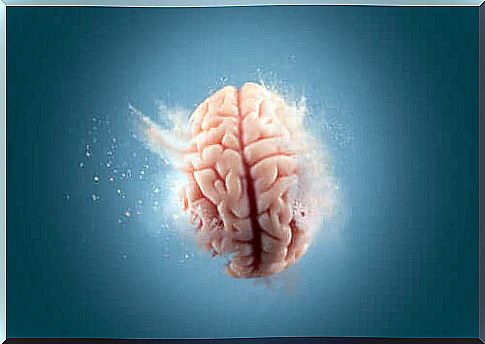The Effects Of Cocaine On The Brain

Have you ever wondered what the effects of cocaine are on the brain ? We will try to answer this question in the next lines.
According to a recent study, which analyzed urban waste, cocaine is the most consumed drug in Italy. A real health problem in drug addiction. This substance, synthesized from the leaf of the coca plant, causes a feeling of euphoria, energy and mental alertness in those who consume it. It also works by reducing appetite as well as the need for sleep.
In addition to these short-term effects, cocaine use produces significant long-term negative consequences, such as emotional or behavioral disturbances. Below we will describe the anatomical, metabolic and functional effects of cocaine on the brain.

The anatomical and metabolic effects of cocaine on the brain
This substance affects the noradrenergic and dopaminergic systems of the brain. Specifically, its mechanism consists in favoring the release of noradrenaline, while inhibiting the reabsorption of serotonin, dopamine and noradrenaline in the synapses. Consequently, in the space between two communicating neurons, also known as a synaptic cleft, the availability of these neurotransmitters is greater.
This effect results in a series of long-term brain changes. In post-mortem examinations, the brains of cocaine users were found to have less dopamine in the striatum, lower density of monoamines, and lower expression of the RNA that encodes the dopamine transporter. An increase in microglia and macrophages was also detected. That is, the use of cocaine is related to the loss of dopaminergic terminals and entire neurons.
Cellular damage causes the reward circuit, of which the dopaminergic pathway is part, to alter its functionality, producing compulsive consumption. Similarly, the lower presence of endogenous dopamine, or hypodopaminergy, causes withdrawal symptoms, depression and craving.
Secondly, it has been observed that the consumption of cocaine and other narcotic substances increases the presence of free radicals and oxidative stress. These cells, although necessary, in excess are related to aging and cell damage. They also interfere with the function of the blood-brain barrier, which is essential for protecting the brain from harmful external agents and maintaining homeostasis.
Finally, the consumption of cocaine alters cerebral vascularization, making stroke more likely, as well as an increase in tumor necrosis factor.

Functional effects
The changes and damages mentioned above produce a series of consequences on the neuropsychological functioning of the consumer. In general, people who use cocaine perform poorly on neuropsychological assessment tests. These effects were found above all in the sphere of attention, memory, response inhibition and executive functions.
More specifically, cocaine affects the mechanisms of selective and prolonged attention, working memory, visual memory and learning ability. These effects become more evident in periods of abstinence.
As for executive functions, cocaine users show greater failures in attempting to inhibit responses, more impulsiveness, and less adept at making decisions. This together with less flexibility in the face of change, a worse ability to process errors and manage contingencies.
In summary, the use of cocaine, probably one of the most addictive drugs, harms the user on several levels. In addition to the effects described above, there are also a large number of emotional, behavioral and social consequences that affect the quality of life of the person who uses it.








